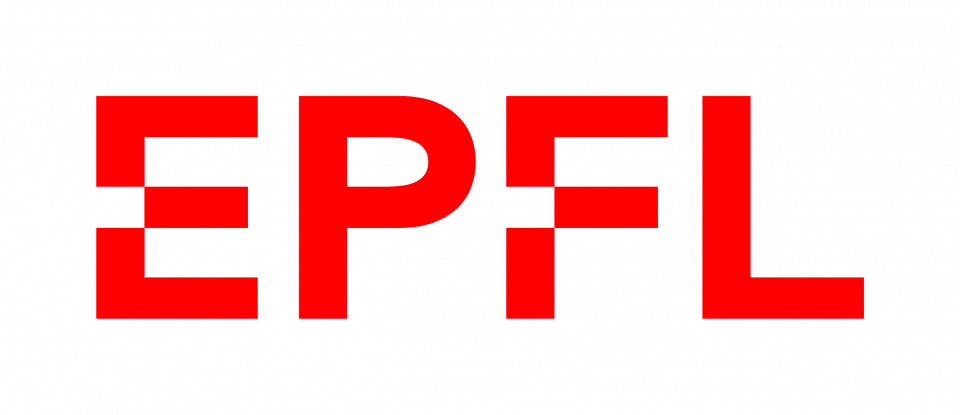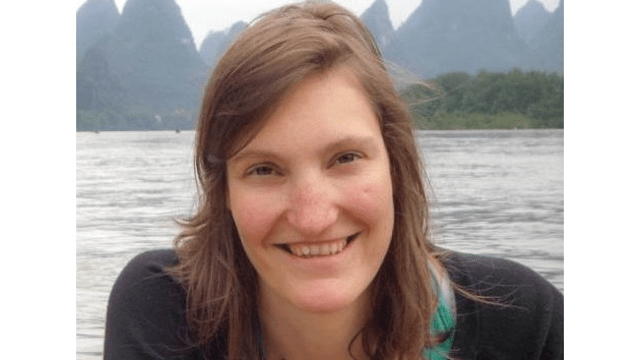"Better understand the relationship between short and long-term memory"
Since 2013, Claudia Clopath, an internationally renowned neuroscientist, has directed her own laboratory at Imperial College London. At the most recent Magistrale, Clopath – an EPFL graduate with a degree in physics – will be presented with an Alumni Award for her exceptional career and research achievements.
Why did you choose EPFL, and what did your time here give you?
I’ve always been fascinated by science, and in high school I was fortunate to have had excellent teachers who nurtured my interest. After that, I naturally gravitated towards EPFL. After considering a few different options, I chose physics because it seemed that the courses in that subject provided a more general grounding than in other areas.
My studies at EPFL were a fantastic time in my life. Take for example, my Analysis class – I loved it! I also have wonderful memories of my exchange program at the University of Waterloo in Canada. This period was enriching for me both personally and professionally. When I completed my Master’s in 2005, I knew I wanted to follow up with a PhD but wasn't entirely sure of which topic. After I attended Prof. Wulfram Gerstner's class in computational neuroscience, however, my mind was made up and that was the path I chose.
How did you come to be at Imperial College London?
After obtaining my PhD in 2009, I completed two post-docs: first at Université Paris-Descartes and then at Columbia University in New York. After that, in 2013, I was given the chance to join Imperial College London and head up my own lab, the Computational Neuroscience Laboratory.
Could you tell us a bit about your area of research?
My research deals with memory and the brain’s learning mechanisms. The goal is to understand how we learn and where our memories are stored. We now believe that memory is not stored directly in the neurons themselves, but in the connections between them, which is to say in the synapses.
For example, when we think about coffee, it triggers a series of memories – the taste, but also its aroma and visual images such as a coffee cup. But how are these memories triggered and, given that synapses change over time, how does this affect memory? These are the kinds of questions we’re trying to answer.
What are the possible medical applications?
The lion’s share of my work is still in fundamental research – it’s crucial for scientists to simply be able to better understand these mechanisms. But, of course, there are any number of potential applications. Alzheimer’s disease represents a major challenge for our society, and improving our understanding of the brain’s mechanisms could help treat it.
Similarly, research into the relationship between excitatory synapses – which generate brain activity – and inhibitory synapses, which moderate this activity, could help us better understand many other diseases. For example, we now know that there is a link between diseases like schizophrenia or epilepsy and imbalances between these two synapse types.
There is also a direct connection with personalized medicine: how can therapies be tailored to individual brains?
In science, we often find a significant number of factors that are unique to each person. In our research on memory, we distinguish between different types of people. For example, there are those who lose their short-term memory but retain childhood memories. The most famous case is that of H.M. (Henry Molaison), the patient who was the inspiration for Christopher Nolan's film Memento. But others who underwent the same surgical intervention, and whose brains lacked a hippocampus, had no memory at all, neither short- nor long-term. Why is this?
By identifying broad categories of patients, we hope to better understand the interactions between short- and long-term memory, and how memories are transmitted to the neocortex where long-term memory is stored.
Looking beyond the medical aspect, could your work on memory and learning also contribute to advancements in artificial intelligence?
Yes, because we know that a consolidation process takes place in the brain so that we don’t forget things over time or when we learn new things. For example, after we learn to ski one winter, we still know how to ski the following winter, even though we probably haven’t skied for a few months and have acquired other skills – like swimming – in between. Until recently, however, this was a real challenge for AI. Machines can learn, but they weren’t designed to learn different things in different fields: when they learn a new field, they forget the earlier one.
Since 2015, we’ve been working with DeepMind, the Google-owned company that is exploring artificial intelligence. We’re focusing precisely on mechanisms that enable AI to acquire skills during a new learning process without forgetting those that they acquired earlier. This is called “continuallearning” and our work has opened up broad areas of research in recent years.
Leaving science aside for a moment, how do you manage your laboratory and your team?
There’s a huge difference between conducting research by yourself and managing a team, and I've learned a great deal over time. Today, there are 15 people in my lab, including PhD students and postdocs. I try to make their experience one that will help them in their careers. This is a big responsibility, but passing on the knowledge that I've acquired is a part of my work that I feel strongly about.
Are there any differences between the way research is carried out in Switzerland and in England?
No, not really. In terms of the international nature and cross-disciplinary approach, research in Switzerland is very close to the British model. If there are any differences, it might perhaps be in the teaching process. It’s my impression that English-speaking countries provide students with more individual support. There are upsides to this, but it can also slow down students from striking out on their own. Both systems have their pros and cons.
What message would you like to share with our newly-minted EPFL graduates?
First, don't hesitate to seek out those who are a few steps ahead of you in their careers, in order to benefit from their experience. Personally, helping out more junior scientists is something I enjoy doing. If I can encourage others, especially women, to go into science, it's always a joy. Also, students should never lose sight of the fact that, as scientists, we are working for the benefit of society. This is especially true if you’ve attended a publicly-funded university like EPFL or Imperial College London.

Comments0
Please log in to see or add a comment
Suggested Articles



